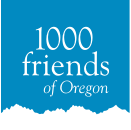The civic engagement standard is archaic — there’s no other way to put it. The internet as we know it has been around since the late 90s, revolutionizing the way we think, connect and learn about the world. But our civic processes haven’t evolved at the same pace, or in many cases, at all. The COVID pandemic has shown us that remote options are not only easy to provide but that they’re effective. There’s no reason to go back.
Civic engagement that only happens at an inconvenient time, in a tucked-away room, deep in the bowels of hard-to-find municipal building is not true or equitable civic engagement. It’s a gatekeeping exercise from a bygone era to limit participation to a select few and keep everyone else out. Its roots are exclusionary by design.
Our system wasn’t made so BIPOC, LGBTQ+, low-income, youth, older individuals, those who are transit-dependent, people with disabilities and other marginalized communities could readily have access or feel comfortable voicing their opinions. The Center for American Progress details why public participation is often not accurately representative: “This is not to say that communities of color or low-income communities are less interested in civic engagement but rather to acknowledge that disproportionate exclusion from civics education—combined with other structural barriers such as voter suppression, voter disenfranchisement, and an understandable distrust of government—can lead to decreased civic participation.”
Even if you can manage to physically get into a meeting, and you’ve got the will to be involved, there are often the undercurent feelings of not belonging in the room that can’t be accounted for by empirical data. The sixth sense of not being welcomed by those around you doesn’t have a geographic limit, it’s baked into society; into Oregon. This is why we must do our best to create a more inclusive, accessible and welcoming civic engagement process.
What’s troubling is that the civic engagement structure has remained mostly status quo even as the world around us has evolved. While it is possible to submit virtual testimony to the Oregon Legislature during sessions, there are no standards set for city, county or other statewide meetings and hearings of public interest. Until now, that is.
In this legislative session, 1000 Friends authored HB 2560, also known as Equitable Access to Civic Engagement. We invoked Goal 1 — “Citizen Involvement” — of Oregon’s statewide land use planning program to create a bill that would permanently require a remote option to public hearings and meetings, and it passed.
Before continuing, we recognize that the wording of the goal is problematic and needs to be updated from its original 1973 language. We’re working to both improve the language of the goal, and ensure that it has equity components built-in.
Back to the bill: HB 2560 ensures that any individual will be able to attend hearings and provide valuable input, in a comfortable environment. More options for civic involvement mean better health outcomes and higher quality of life. We’re hoping for a system where public officials can’t make snap decisions behind closed doors about what’s best for a community without truly leaning in to listen.
It’s a step in the right direction of fixing our convoluted and inequitable system of government. There certainly is no one size fits all solution, rather, it’s going to take the will of our governments to change, and the continued push from the public to keep the pressure on.
I’m certain this bill will do just that, and I’m excited for the many other ways 1000 Friends can harness the power of the land use planning system to create a better Oregon. For everyone, and by everyone.
